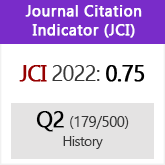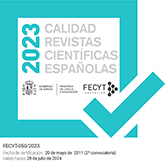Fascismo en España. Política local y control gubernativo en la Cataluña franquista: ¿fue el porciolismo una fórmula aperturista?
DOI:
https://doi.org/10.3989/hispania.1998.v58.i199.652Keywords:
Spain, Franco's regime, Local Government, Barcelona.Abstract
To contribute to the debate over the nature of the Francoist dictatorship, the article looks into a long experience in local government (1957-1973) in Barcelona, which served as a model for the government of big cities in the last period of Franco´s era. If Franco´s régime was built as a fascist one during the Civil War and first postwar years (1936-1942), it's necessary to evaluate its evolution after that, to know if subsequent political changes was enough to modify that characterization. We can see in Barcelona's case how political transformations in Franco´s régime was only apparent. All reformist steps in local rule of big cities, like those of J.M. de Porcioles —Barcelona's mayor— in that period, were, in the end, increments in the mayor’s control of the town council, and the central control of the mayor. So Porcioles' liberatization was not only perfectly compatible with the Local Act of 1945, very similar to an Italia one of 1934 under Mussolini, but reinforced tha Act's most totalitarian elements.
Downloads
Download data is not yet available.
Downloads
Published
1998-08-30
How to Cite
I Corbera, M. M. (1998). Fascismo en España. Política local y control gubernativo en la Cataluña franquista: ¿fue el porciolismo una fórmula aperturista?. Hispania, 58(199), 655–678. https://doi.org/10.3989/hispania.1998.v58.i199.652
Issue
Section
Studies
License
Copyright (c) 2019 Consejo Superior de Investigaciones Científicas (CSIC)

This work is licensed under a Creative Commons Attribution 4.0 International License.
© CSIC. Manuscripts published in both the printed and online versions of this Journal are the property of Consejo Superior de Investigaciones Científicas, and quoting this source is a requirement for any partial or full reproduction.All contents of this electronic edition, except where otherwise noted, are distributed under a “Creative Commons Attribution 4.0 International” (CC BY 4.0) License. You may read here the basic information and the legal text of the license. The indication of the CC BY 4.0 License must be expressly stated in this way when necessary.
Self-archiving in repositories, personal webpages or similar, of any version other than the published by the Editor, is not allowed.














